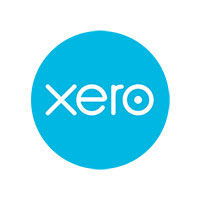
The normal time limit for paying capital gains tax is by 31 January following the tax year end. So if you sold an asset, for example a buy to let, on 30 April 2018, you would not need to pay the tax on the capital gain until 31 January 2020 (some 21 months after the sale). The exception is for non UK residents who, since April 2015, have had to pay the tax on capital gains on the sale of residential properties within 30 days of completion.
Accelerating the payment of tax is very attractive to the government. So the proposal, set out in a recent consultation, is apply the 30 day payment limit to taxable gains made on the sale of all residential property from April 2020.
How does this affect me?
Under current rules, if a residential property is classed as your main residence (or Principal Private Residence), the gain arising on disposal will usually be totally, or in part exempt, from CGT.
If you own a second residential property, any gain on the disposal above £11,700 is subject to CGT at either 18% or 28% depending on the level of your taxable income.
Capital gains that arise when you sell a second home or rental property can be significant and the government believes that if this tax is paid sooner rather than later, it will reduce potential room for error and at the same time increase compliance.
It is proposed that an individual who disposes of a residential property where a taxable gain arises will be required to pay the estimated tax and file a special payment on account tax return to HMRC within 30 days of the completion of the disposal . This will include capital gains made on the sale of overseas residential property.
When will it affect me?
Currently, unless you have reported the capital gain through the ‘Real Time Transaction Tax Return’ and opted to pay the tax straight away, CGT is due by 31 January following the end of the tax year in which the property was disposed. Under the proposed changes, if you sell a residential property and realise a taxable capital gain on or after 6 April 2020, a tax payment on account, and return, will be due within 30 days of completion.
Pros and Cons
The Autumn Statement 2015, set out the intention of government to make paying CGT ‘quicker and simpler’ for taxpayers while addressing the fact that the payment of CGT is ‘out of step’ with the position of taxpayers under PAYE. This is perhaps a little misleading. PAYE applies to income paid on a regular basis, monthly or weekly and where the calculation is relatively straightforward. Capital gains tend to be one off events, and often involve significant sums, and complex calculations. Furthermore, whilst a capital gain might be realised on the disposal of one asset, a subsequent asset sold later in the year, might be at a loss, so the net capital gains tax payable will not be known after the end of the tax year.
Accelerating the payment of tax in respect of capital gains sets the precedent to extend this across to other taxes currently within self-assessment. Speeding up payment of tax receipts will always be a very attractive prospect to the government and very much in line with the ethos of Making Tax Digital. It is almost certain that the government will push ahead with this change.
Further information can be found by visiting: https://www.gov.uk/government/consultations/capital-gains-tax-payment-window-for-residential-property-gains
Please contact Mark Wildi, to discuss how Capital Gains Tax may affect you, on 1689 877081 or complete our online form.




